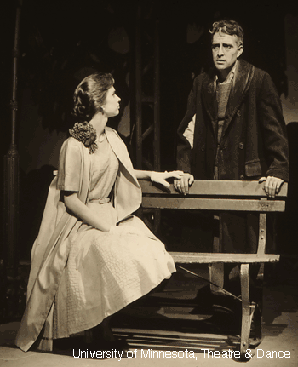As teachers of theatre history, theory, and performance theory and practice we engage in crucial public work: the training of future audiences. Our labour, every day, is social activism, whether we call it that or not. The latest issue of Canadian Theatre Review celebrates this work, and explores its challenges from multiple perspectives. [Read More]
How “past” do events have to be before they’re “history”? I confess I was (and am) a little nervous contributing to a volume about writing theatre history when my primary research (activist performance and US evangelical movements) seems so . . . current. What qualifies my work as historiography instead of performance studies, criticism, or even journalism? For me, historiographic concerns inhere not in the subjects I study but in the questions I address in investigating that subject. I draw on the work of Michel de Certeau, who posits historical research as heterology—an encounter between different entities, between distinct imaginations past and present. Crucial to this encounter, argues Certeau, is the realization that historians cannot (or do not) simply bracket their own commitments in their research. Rather, historians’ present concerns shape and are shaped by their representations of the past.
In my work, I am drawn to performances by groups whose worldviews actively oppose or exclude my own. Beyond requiring that I meet baseline expectations of accuracy, evidence, and argument, my historiographic training pushes me to attend to how my ideological investments influence my representation of groups who stand on the other side of ethical, political, and/or theological divides. In particular, I must be aware of how the words and critical models I use to describe both my allies and my enemies can subtly reinforce my own positions and assumptions. Certeau argues that heterologies ought to be mutually transformative, resituating not merely the object of research but the researcher her/himself. Writing within/for an academic community that generally shares my worldview, I can easily craft technically accurate studies that flatter the assumed rightness of my position. A heterological historiography demands something more. It demands that I de-familiarize my own political assumptions, displacing myself, through encounters with ideological others. It may not be in the past, but it’s historiography to me.
Click below for info on the special issue of Canadian Theatre Review (#147, summer 2011), called “The Activist Classroom: Performance and Pedagogy,” edited by Kim Solga.

